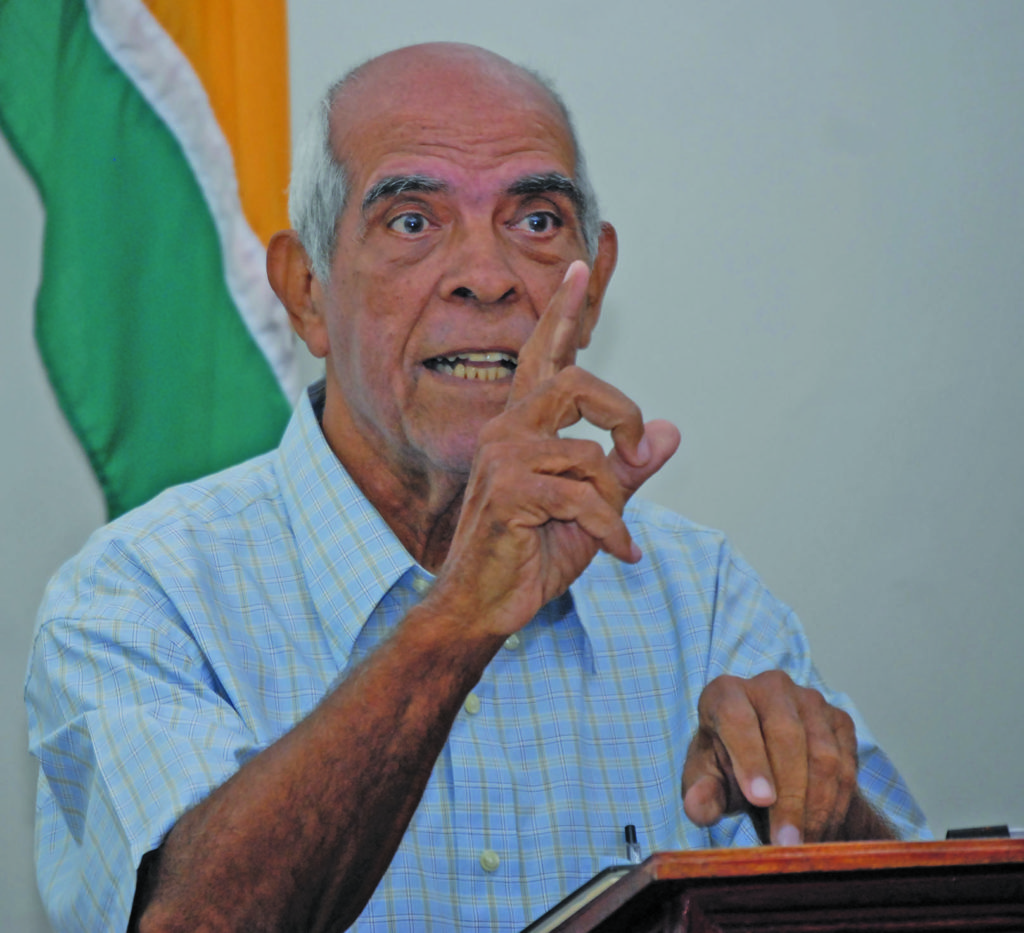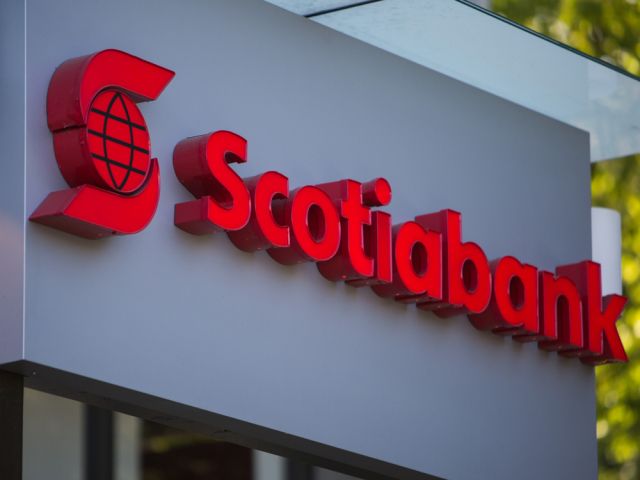The sale of Scotiabank’s operations in Guyana to Republic Bank should not be allowed, according to former Presidential Advisor, economist Ramon Gaskin.
Gaskin believes that the sale to Republic Bank would only allow that banking institution to dominate the local banking sector in Guyana, which could be unhealthy for the financial sector.
The Trinidad-based Republic Financial Holdings Limited (RFHL) said it had entered into an agreement to acquire Scotiabank’s banking operations in nine Caribbean countries.
It said banks being acquired were located in Guyana, St Maarten, Anguilla, Antigua and Barbuda, Dominica, Grenada, St Kitts and Nevis, St Lucia, and St Vincent and the Grenadines.
Further, the purchase price is US$123 million, which represents US$25 million consideration for total shareholding of Scotiabank Anguilla Limited; and a premium of US$98 million over net asset value for operations in the remaining eight countries.
Gaskin said, “I think that this proposed sale of Scotiabank in Guyana to Republic Bank should not be allowed by the Government of Guyana and the Governor of the Central Bank.”
The outspoken economist told Guyana Times International that before Scotiabank ventured into any arrangement with Republic Bank, it should have consulted with the Government.
“Now that is putting the Government and the Governor in an awkward position of opposing it and all of that. I think they erred in not consulting with the appropriate authority before getting into it and it shows a lack of respect in my opinion to the authorities here,” he said.
Gaskin further added that the Central Bank and the Governor of the Central Bank must bear in mind that many deposits and savings for the Guyanese people remain with Scotiabank. “I look to the Governor to take actions that are appropriate, necessary and urgent to put people to ensure that the savings of Guyanese people are secured,” he advised.
But more importantly, Gaskin believes since Scotiabank wants to exit the Guyanese market, there should be an option for local entities to acquire the banking operations.
“They shouldn’t sell to any foreign bank. There isn’t any reason why the local Guyanese business people can’t get together and take it over from them. They can build a Guyanese bank with developmental features to help finance agriculture and small business.”
Local banks
According to him, this could be done in partnership with the Government and/or with a foreign bank, with the local bankers having a majority.
He noted that Republic Bank’s acquisition of the Guyana National Cooperative Bank and Guyana Agricultural Bank back in the 1990s helped hugely to build the bank to its current state.
However, he was persistent in his recommendation that Republic Bank should not be the only bank that should be given priority to acquire the local Scotiabank operations.
The Antigua and Barbuda Government has taken a similar stance and said that it was “deeply disappointed” that Scotiabank would decide to sell its operations “without any form of consultation” with the regulators or the Finance Minister of that island nation.
The Guyana Government, on the other hand, has said the agreement “raises a number of issues for the banking sector in Guyana and for the public which the Finance Ministry, the Bank of Guyana and the Government of Guyana will need to carefully consider”.
The Ministry in a statement said that “this move is not Guyana-specific and is part of a region-wide refocusing by Scotiabank” and that it has also taken note of the statement by RFHL that the agreement is “subject to all regulatory approvals”.
It posited that the Financial Institutions Act (FIA) has clear stipulations regarding “acquisition of control” and requires approval of the Bank of Guyana following the submission of an application and due diligence being conducted.
“Further the FIA addresses as well the issue of ‘fundamental changes’ as it relates to mergers and transfer of assets or liabilities. The agreement raises a number of issues for the banking sector in Guyana and for the public which the Ministry of Finance, the Bank of Guyana and the Government of Guyana will need to carefully consider,” the Finance Ministry said.
The Ministry stated that these include Republic Bank currently holding 35.4 per cent of the banking system’s assets and 36.8 per cent of deposits, which the acquisition would increase to 51 per cent of both assets and deposits. “This raises concerns about an over-concentration of banking services, market domination and the ‘too big to fail’ risks,” the Ministry said.
It added that it would also have to take into consideration “the effect on competition and the potential for Republic Bank to have too much influence on pricing of banking products and rates.”

Former Presidential Advisor and economist Ramon Gaskin 



